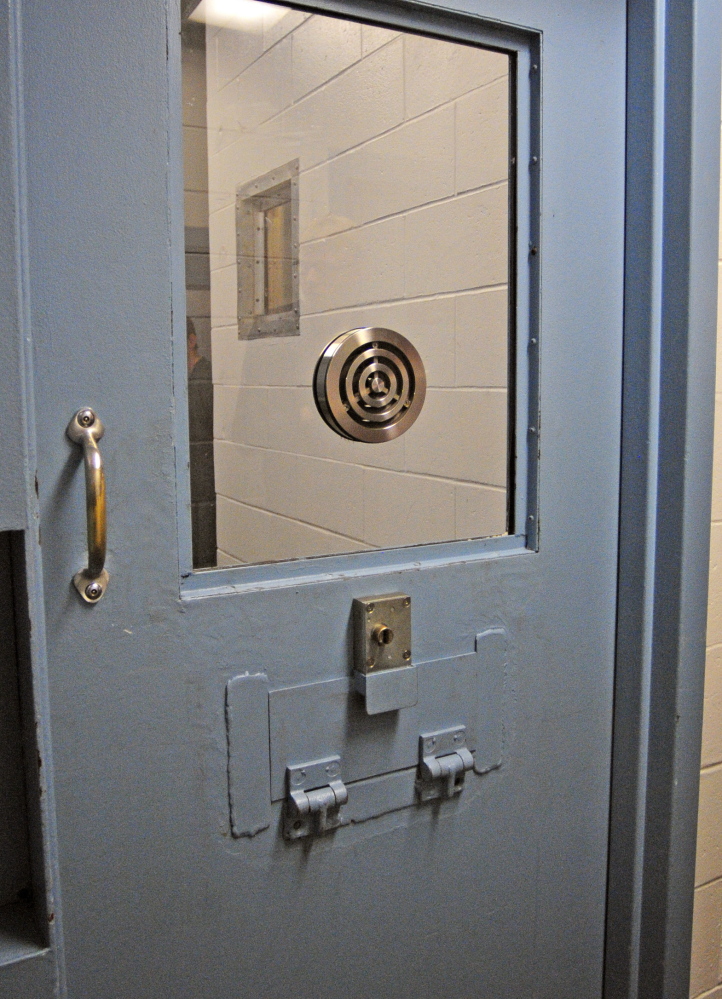The numbers are distressing: 272 drug overdose deaths in Maine in 2015 – a 31 percent increase over 2014.
We’ve seen the devastating consequences of addiction and unimaginable sadness that comes from telling a family about the unnecessary death of a loved one taken too soon from this world. We know that treatment saves lives and health coverage is important in accessing treatment. We see coverage as a vital communitywide benefit that can prevent crime, violence and suffering, saving our criminal justice system resources, time and money.
Extending health coverage to people with low income, most who work but often can’t afford coverage, would help them access health care, including mental health and substance abuse services.
ADDRESSES THE GAP
The Maine Sheriffs’ and Maine Chiefs of Police associations support accepting the enhanced federal health care funds to provide low-income Mainers who suffer from addiction or mental health illness with health care, including treatment. With the federal government picking up most of the costs, it’s the most affordable option we have to promptly address the gap in treatment many face.
Drug and mental health treatment is necessary, if not critical, to reducing drug-related crime in Maine. People are dying of the torrid epidemic of opioid and heroin addiction. Mainers across the state are struggling to rid themselves of this disease.
While more are seeking treatment with the goal of living a useful and productive life free of addiction, many face barriers to accessing the treatment they need to turn their lives around. The result is a costly cycle in and out of jail and a drain on our criminal justice system.
Sixty percent of Maine’s inmates suffer from substance abuse and 40 percent from some degree of mental illness. Jails have become de facto treatment centers. It is time to change the way we are doing things.
Other states are using the federal health care funds to treat addiction and reduce drug related crime. They are seeing savings and success in reducing incarceration and re-entry into the criminal justice system.
State and county corrections departments across the country have launched health coverage enrollment programs as part of the discharge planning process. Over 64 programs were operating in jails, prisons, probation and parole systems last year, enrolling individuals during detention, incarceration and the release process. If we are serious about defeating this epidemic, we must use all available resources, including those from the federal government that other states have seen success with.
Washington state uses the federal funds to provide treatment to people who have been involved in the criminal justice system – services previously funded with state-only tax dollars that helped to reduce arrests by 17 to 33 percent. Replacing state funds with federal funds has created savings for local law enforcement, jails, courts and state corrections agencies.
States use the federal funds to pay for treatment provided through mental health and drug courts. Maine’s 2014 Annual Report on Adult Drug Treatment Courts confirms that our drug courts offer a successful approach to the challenge of substance abuse and crime but are underutilized.
COURTS CAN’T DO IT ALL
Drug court funding is described as being uncertain, in spite of demonstrated cost avoidance and benefits and that without funding for treatment, adult drug courts cannot be sustained. Federal health care funds could help pay for these services.
States are using the federal funds to pay for inpatient hospital services provided to inmates and seeing savings. Ohio saved $10.3 million in 2014. Kentucky, Michigan, Colorado, Washington and Arkansas have booked millions in savings. We are struggling to pay for the costs of jails in Maine, while other states are finding solutions.
Inmates suffering with substance abuse have a better chance of overcoming addiction and reducing their chances of reoffending if connected to treatment. The federal health care funds could be used to relieve jails of significant health-related expenses.
Not long ago, the Legislature passed the anti-heroin/opioid bill that began to address this terrible problem. Many legislators said it was only a down payment on what it would take to effectively deal with the epidemic.We can take another significant step in ridding our state of this problem. By accepting the federal health care funds, we will improve access to treatment and care. In the end, this will save taxpayers money and save lives.
Send questions/comments to the editors.



Success. Please wait for the page to reload. If the page does not reload within 5 seconds, please refresh the page.
Enter your email and password to access comments.
Hi, to comment on stories you must . This profile is in addition to your subscription and website login.
Already have a commenting profile? .
Invalid username/password.
Please check your email to confirm and complete your registration.
Only subscribers are eligible to post comments. Please subscribe or login first for digital access. Here’s why.
Use the form below to reset your password. When you've submitted your account email, we will send an email with a reset code.